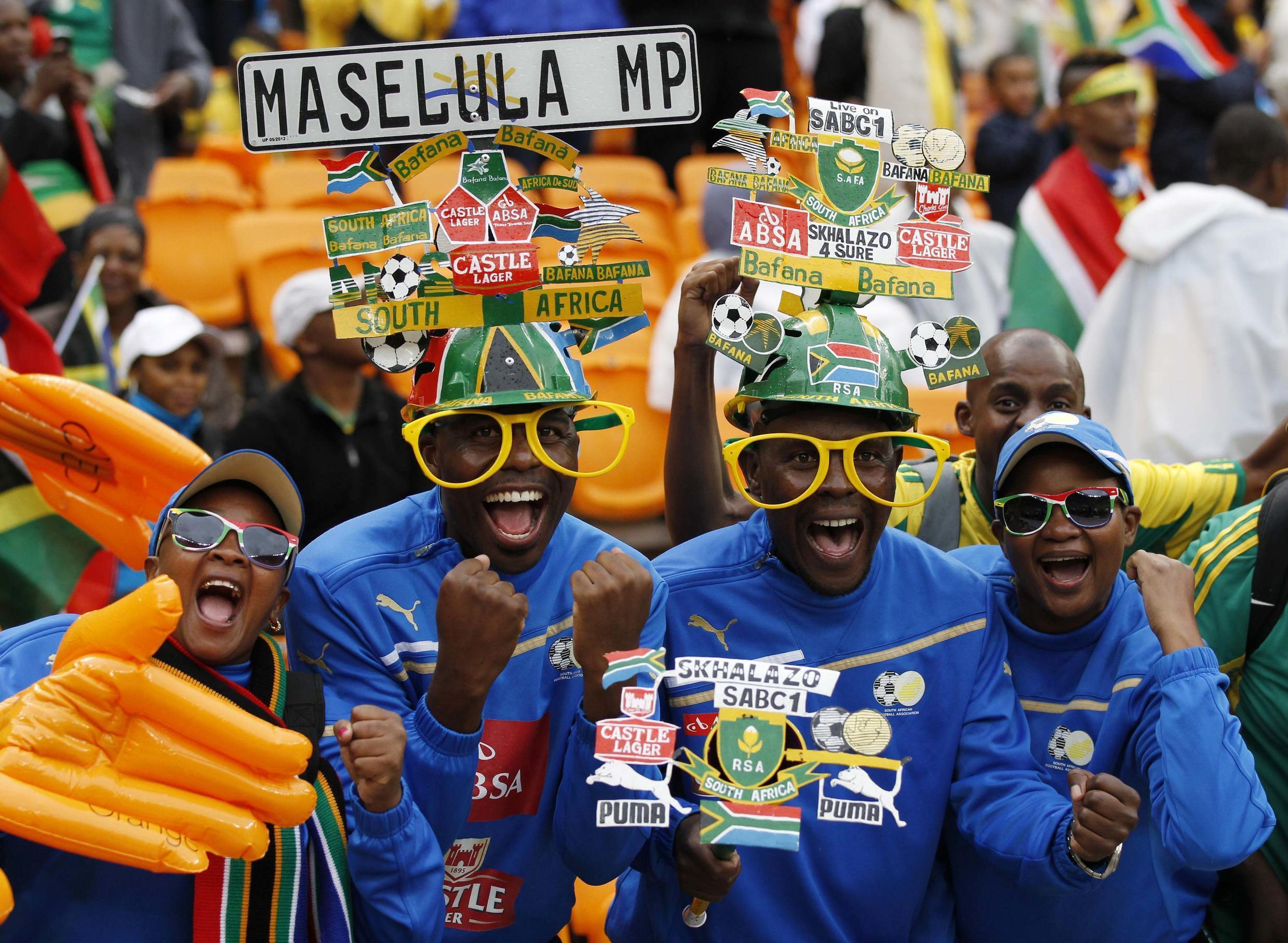Africa Cup of Nations 2013 kicks off
Less than three years after it staged the football world cup final, the 90,000 capacity arena in Soweto is back in the limelight. When the Netherlands and Spain fought for the ultimate national team crown, it was called Soccer City, but since that icy evening in July 2010, the venue has been rather coldly retitled the National Stadium. But in football pragmatism has always jostled with poetry for supremacy.
Issued on: Modified:

In the Africa Cup of Nations a year ago, romance ran rings around the functional.
Zambia pulled off the unlikeliest of victories over a Côte d’Ivoire side packed with seasoned winners.
Didier Drogba, then Chelsea’s front line force of nature; Yaya Touré, Manchester City’s midfield enforcer and the mercurial trickery of Arsenal’s Gervinho.
Against them in the final in Libreville was an unheralded collective forged together by journeyman coach Hervé Renard.
But sporting his lucky white shirt and embracing a clear-eyed lyricism about the 18 Zambian footballers who perished in a plane crash outside Libreville in 1993, Renard retempered the nation’s lament about the lost legacy of a golden generation.
Zambia in Gabon last year was the chronicle of a victory foretold. That Stoppila Sunzu secured the trophy with the 18th penalty of the shootout simply sealed the symmetry.
But without otherworldly assistance this time around how will the African champions fare? And what of the Ivorian masterclass?

Since 2006 they have been the anointed ones. Egypt beat them in the final in Cairo that year. In Ghana two years later, the Egyptians were too savvy for them in the semi-finals and in Angola in 2010, Côte d’Ivoire unravelled in the quarter-finals against Algeria.
But by any other standards, this is a tale of high achievement. And in the quest for their grail, Drogba, now of the parish of Shanghai Shenhua, says he’s keen not to fall by the wayside too early.
“It’s a tough draw,” said the 34-year-old speaking of Group D opponents Togo, Algeria and Tunisia. “But when you go to a competition like the Africa Cup of Nations you have to expect that and we’re ready to face it. We have to face it. If you want to go to the final and win it, we have to face the best teams and beat them.”
But Zambia’s trajectory has inspired the continent’s underdogs. Cape Verde, who are South Africa’s adversaries in the opening Group A match, toppled Cameroon to reach the final 16 for the first time.
Senegal, another traditional continental powerhouse, have also failed to make the grade. “For us the level of football is getting greater,” said Hicham El Amrani, secretary general of African football’s governing body CAF.
“We can see a number of surprises. Actually we call them surprises but it’s becoming a habit of African football. Last year in Gabon we had five or six big names which weren’t present.”
Succour to the small, tribulation for the titans, the 29th Africa Cup of Nations could be remembered for its openness as each of the teams will feel they have a chance of success.
The competition also arrives without a pompous backdrop. Angola’s offering three years ago was a crass projection of parvenu incompetence.
The talk among the self-basting CAF and Angolan dignitaries was of nation building and a country emerging from a ruinous civil war. But for all the shiny new roads and airports bundled out for the occasion, the structural and administrative deficit was plain to see and painful to experience.
A couple of years ago, South Africa too was ever so feisty about exhibiting its wonderfulness.
Today there’s a tranquillity about those attributes.
El Amrani acknowledged this aura on the eve of the tournament as he thanked South African organisers for stepping in to host the tournament after Libya withdrew due to the security problems there.
“We’re lucky to be in South Africa,” he beamed. “This competition was not scheduled to be here. They’ve had a year or so to prepare and we appreciate their huge achievement. Of course, it’s been made easier because of the legacy created by the World Cup.”
Cheers and jeers will ring out over the next month at the venues built for that football fest in Port Elizabeth, Durban, Mbombela and Rustenberg.
But it will be the tears at the National Stadium after the final on 10 February that will enthral.
Daily newsletterReceive essential international news every morning
Subscribe